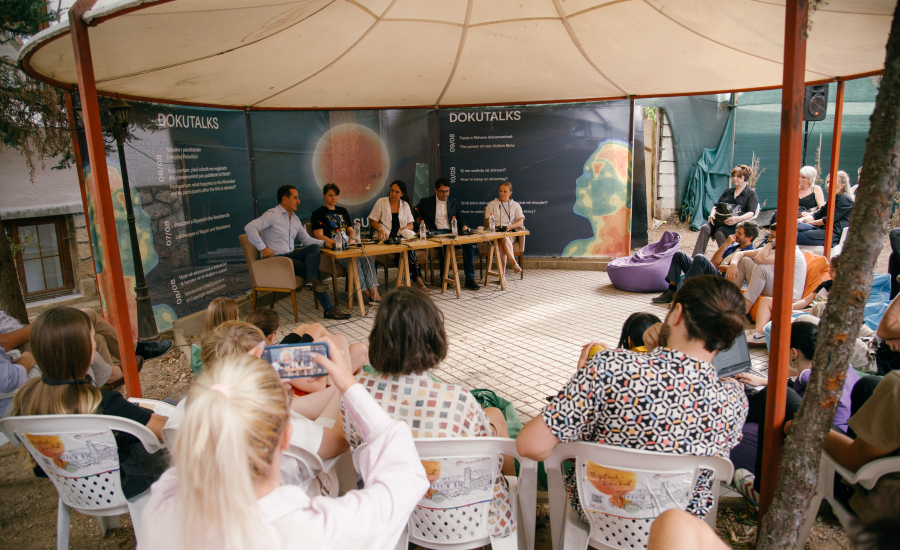13/08/2022
The importance of documenting war crimes brought to the last panel of DokuTalks, four professionals from Kosovo and Ukraine who referenced the past and present of the two countries to show the importance of reporting. In places where the wound still hurts and is open, telling the past is an obligation that helps heal those wounds. Part of the panel moderated by Dea Gjinovci were Bekim Blakaj, Nebi Qena, Zhanna Maksymenko-Dovhych and Sasha Romantsova. The four members of the panel brought to attention specific cases of events that they themselves have witnessed, not leaving out of attention the effort it took to identify and then refer these cases to justice to let it do its job. Also, the period after these cases fall into the hands of justice is not a part in which the pain ends, the difficulties are not absent and sometimes not even the bureaucracies with which the victims not infrequently face at the doors of the courts. But the difficulty of being investigated remains a challenge, which was brought to the attention of Bekim Blakaj.
"We have started our organization in Kosovo to document the events and I have started working by doing interviews, meeting family members of the victims and survivors in order to collect information. At that time we did not know how to do this, it was simple to knock on the door of the victims and identify them. Of course, it is a difficult job to do, to talk to the families of the victims and explain to them the reason why this information was needed. It is important not to have high expectations, but the family members of the missing believe in you when you explain to them because they believe that you have the power and can help them find their missing family members… Today, 23 years later, we are still working in that direction and we have a high number of missing persons on the register. What this process taught us was that it was necessary to document in order not to face situations when information is hidden, the missing, the dead, their identity is changed or manipulated. Documentation is also used to commemorate, so by creating this narrative this collective memory that is based on facts as a form of education we have developed an informal education program. This is a small contribution of our organization to the education and documentation of the past.”
While the well-known journalist Nebi Qena in his speech did not forget to bring attention to the responsibility of the reporter in relation to this great work that they do. This was the last DokuTalk discussion and had a high number of participants.
By Ana Haxhimali
Photo Credits: Kushtrim Haxha



